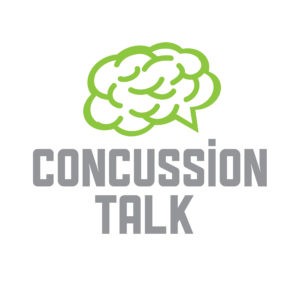Welcome Ashley Kinsella, a physiotherapist at ProActive Physiotherapy in Newfoundland and Labrador! Ashley has written a very informative and helpful post about concussions, the importance of treating them properly and what happens in your brain when you sustain a concussion. Please read this valuable post and learn about concussions, baseline testing and the importance of rest and proper concussion management.
A common misconception is that a concussion results from sustaining a hit to the head. This, however, is not the case! The mechanism of injury is actually a force that can cause a significant acceleration or deceleration to the head and neck, causing the brain to move around in the skull. So, while a direct hit to the head is the most likely way to sustain a concussion, it can also occur from being hit elsewhere on the body, a simple fall, or even a car accident.
When the brain undergoes a significant acceleration or deceleration force, the affected brain cells (called neurons) discharge and fire uncontrollably, resulting in dysfunction in those cells. This may lead to dizziness, headaches, confusion, ringing in the ears, blurry vision, balance problems, loss of consciousness, seizures, or a number of other signs and symptoms. This initial phase of the concussion is usually short in duration, lasting from a minute or two, to 20 minutes. After this immediate response, the neurons calm down and the brain enters into a state of energy crisis. This phase can last anywhere from a week up to a month or more, and is typically accompanied with headache and feelings of fatigue, among other things. In this low energy state, the brain is extremely vulnerable and even minor trauma can cause another concussion. This second injury is where the real danger lies, as it can cause permanent or even fatal brain injury.
How long does the brain remain in this vulnerable, low energy state? That is something we don’t know yet, as everyone seems to be a little different. Unfortunately, since there is no diagnostic imaging that can detect a concussion, it is difficult to determine when you have fully recovered. Often, an individual may actually feel better and think they are better, but will still show deficits in neurologic function. Deficits seen after a concussion can be subtle, so without knowing your optimal brain function in a healthy state, it is impossible to ensure that you are fully recovered following a concussion. This is why comprehensive baseline evaluation is important.
A baseline test consists of a number of different examination procedures and is used to determine your brain’s optimal function in a healthy state. It tests all areas of brain function that can be affected by concussion, including balance, reaction time, visual and auditory concentration, orientation and mental status, visual and auditory memory, visual speed and processing abilities, motor strength and performance, and neurocognitive function. Post-concussion, this information is used to make a proper diagnosis and to recognize which deficits need to be treated. Also, an individual can be compared to their pre-injury status to make safer decisions on when to return to sport, school, or work. There is no guesswork with baseline tests.
Concussions are not completely preventable, but can be managed well with proper knowledge and interventions. Education from reliable sources and comprehensive baseline testing are essential parts to complete recovery and safe return to activity. Would you return to sport a week after breaking your leg? Not likely, and your brain should be treated with the same care. Appropriate rest periods and gradual introduction to activity are crucial.
At ProActive Physiotherapy, we offer comprehensive baseline testing, coach and trainer education programs, Return-to-Learn and Return-to-Play Management, and injury treatment and rehabilitation. For more information on Complete Concussion Care, please contact
ProActive Physiotherapy at concussioncare@proactivephysio.ca.
Ashley Kinsella, RegPT BKIN Coop (Hons) MScPT
Registered Physiotherapist
ProActive Physiotherapy
